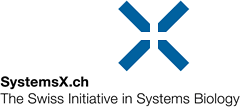SynaptiX
The Systems Biology of Forgetting
An outstanding feature of our brain is its ability to form memories. However, memories are not necessarily written in stone and are subject to active and passive forms of decay. In this project, the issue of forgetting is approached jointly from distinct angles, connecting theory with large-scale quantitative experimental data by means of behavioral, genetic, transcriptomic and imaging techniques.
Acquiring new memories is essential to existence and adaptation in constantly changing environments. However, it is as important to be able to forget and erase memories that are unused or no longer important. Surprisingly, little is known regarding the active processes that underlie the phenomenon of forgetting. The passive decay of memories and interference of newly acquired and old memories are considered an inevitable property of the underlying networks.
Possible medical applications
Understanding the active neural and genetic processes that allow for forgetting, and approaching this phenomenon in a systems biology framework will open new doors for later medical applications. Undeniably, forgetting will become a prevalent theme in an aging society, be it as a burden that requires medical treatment, or as a wise invention of nature to adapt.
Interdisciplinary approach
In the SynaptiX collaborative research program, we will systematically investigate the biology of forgetting in an interdisciplinary fashion by combining theory, quantitative behavioral experiments, genetic engineering, next generation sequencing, and super-resolution microscopy.
| Principal Investigator | Prof. Simon Sprecher, Department of Biology, University of Fribourg |
| Involved Institutions | University of Fribourg, University of Bern, University of Nevada |
| Number of Research Groups | 5 |
| Project Duration | May 2013 – Apr. 2017 |
| Approved SystemsX.ch Funds | CHF 1.975 million |
Updated June 2013


